List of monarchs of Luxembourg

The territory of Luxembourg has been ruled successively by counts, dukes and grand dukes. It was part of the medieval Kingdom of Germany, and later the Holy Roman Empire until it became a sovereign state in 1815.
Counts of Luxembourg
[edit]House of Ardenne–Luxembourg
[edit]| Image | Name | Date of birth | Date of death | Reign | Relationship with predecessor |
|---|---|---|---|---|---|
 | Siegfried | 922 | 28 October 998 | 963 – 28 October 998 | |
 | Henry I | 964 | 27 February 1026 | 28 October 998 – 27 February 1026 | his son |
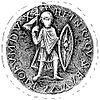 | Henry II | 1007 | 16 October 1047 | 27 February 1026 – 16 October 1047 | his nephew |
| Giselbert | 1007 | 14 August 1059 | 16 October 1047 – 14 August 1059 | his brother | |
 | Conrad I | 1040 | 8 August 1086 | 14 August 1059 – 8 August 1086 | his son |
 | Henry III | 1070 | 1096 | 8 August 1086 – 1096 | |
 | William I | 1081 | 1131 | 1096 – 1131 | his brother |
 | Conrad II | 1106 | 1136 | 1131 – 1136 | his son |
| Ermesinde I | 1080 | 1143 | 1136 – 1136 | his aunt |
House of Luxembourg–Namur
[edit]| Image | Name | Date of birth | Date of death | Reign | Relationship with predecessor |
|---|---|---|---|---|---|
 | Henry IV the Blind | 1112 | 14 August 1196 | 1136 – 14 August 1196 | her son |
House of Hohenstaufen
[edit]| Image | Name | Date of birth | Date of death | Reign | Relationship with predecessor |
|---|---|---|---|---|---|
 | Otto | June/July 1170 | 13 January 1200 | 1196 – 1197 | his third-cousin once removed |
House of Luxembourg–Namur
[edit]| Image | Name | Date of birth | Date of death | Reign | Relationship with predecessor |
|---|---|---|---|---|---|
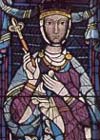 | Ermesinde II | July 1186 | 12 February 1247 | 1197 – 12 February 1247 | Henry IV's only daughter and Otto's fourth cousin |
 | Theobald I | 1158 | 13 February 1214 | 1197 – 13 February 1214 | her first husband and co-ruler |
 | Waleran | 1180 | 2 July 1226 | May 1214 – 2 July 1226 | her second husband and co-ruler |
House of Luxembourg–Limburg
[edit]| Image | Name | Date of birth | Date of death | Reign | Relationship with predecessor |
|---|---|---|---|---|---|
 | Henry V the Blond | 1216 | 24 December 1281 | 12 February 1247 – 24 December 1281 | their son |
 | Henry VI the Condemned | 1240 | 5 June 1288 | 24 December 1281 – 5 June 1288 | his son |
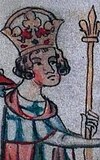 | Henry VII | 1275/1270 | 24 August 1313 | 5 June 1288 – 24 August 1313 | |
 | John the Blind | 10 August 1296 | 26 August 1346 | 24 August 1313 – 26 August 1346 | |
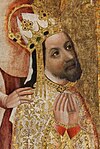 | Charles IV | 14 May 1316 | 29 November 1378 | 26 August 1346 – 1353 | |
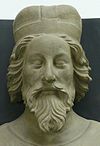 | Wenceslaus I | 25 February 1337 | 7 December 1383 | 1353 – 13 March 1354 | his brother |
Dukes of Luxembourg
[edit]In 1354, the county was elevated to a duchy.
House of Luxembourg-Limburg
[edit]| Image | Name | Date of birth | Date of death | Reign | Relationship with predecessor |
|---|---|---|---|---|---|
 | Wenceslaus I | 25 February 1337 | 7 December 1383 | 13 March 1354 – 7 December 1383 | himself as count |
 | Wenceslas II the Lazy | 26 February 1361 | 16 August 1419 | 7 December 1383 – 1388 | his nephew |
 | Jobst | December 1351 | 18 January 1411 | 1388 – 18 January 1411 | his cousin |
 | Elisabeth I | November 1390 | 2 August 1451 | 18 January 1411 – 1443 | his heiress & first cousin once removed |
 | Anthony | August 1384 | 25 October 1415 | 18 January 1411 – 25 October 1415 | her first husband and co-ruler |
 | John II the Pitiless | 1374 | 6 January 1425 | 10 March 1418 – 6 January 1425 | her second husband and co-ruler |
As Elisabeth had no surviving children, she sold Luxembourg to Philip III, Duke of Burgundy in 1441, but only to succeed upon her death. Philip captured the city of Luxembourg in 1443, but did not assume the ducal title because of conflicting claims by Anne of Austria, the closest Luxembourg relative.
Claimants
[edit]| Image | Name | Date of birth | Date of death | Reign | Relationship with predecessor |
|---|---|---|---|---|---|
 | Elisabeth I | November 1390 | 2 August 1451 | 1443 to 2 August 1451 | |
 | Ladislaus the Posthumous | 22 February 1440 | 23 November 1457 | 2 August 1451 to 23 November 1457 | Her first cousin once removed |
 | Anne | 12 April 1432 | 13 November 1462 | 23 November 1457 to 13 November 1462 | His sister |
 | William the Brave | 30 April 1425 | 17 September 1482 | Her husband and co-pretender | |
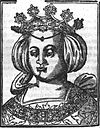 | Elisabeth II | 1436 | 30 August 1505 | 13 November 1462 to 1467 | Her sister |
 | Casimir Jagiellon | 30 November 1427 | 7 June 1492 | Her husband and co-pretender | |
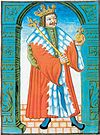 | George of Poděbrady | 23 April 1420 | 22 March 1471 | 1458 to 1471 | Claimed title as king of Bohemia[1] |
House of Valois-Burgundy
[edit]In 1467, when Elisabeth II of Austria, last rival claimant to the title, renounced her rights, Philip III's son, Charles, Duke of Burgundy, assumed the title of duke of Luxembourg, making it a subsidiary title of the Duke of Burgundy.
| Image | Name | Date of birth | Date of death | Reign | Relationship with predecessor |
|---|---|---|---|---|---|
 | Philip I "the Good" | 31 July 1396 | 15 June 1467 | 1443 to 15 June 1467 | Elisabeth I's second cousin once removed and "usurper" |
 | Charles II "the Bold" | 10 November 1433 | 5 January 1477 | 15 June 1467 to 5 January 1477 | His son |
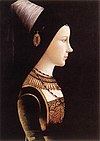 | Mary I "the Rich" | 13 February 1457 | 27 March 1482 | 5 January 1477 to 27 March 1482 | His daughter |
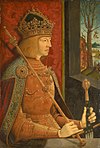 | Maximilian I "the Last Knight" | 22 March 1459 | 12 January 1519 | Her husband and co-ruler |
House of Habsburg
[edit]In 1482, Luxembourg passed to the House of Habsburg. After the abdication of Emperor Charles V, the duchy of Luxembourg fell to the Spanish line of the House of Habsburg.
| Image | Name | Date of birth | Date of death | Reign | Relationship with predecessor |
|---|---|---|---|---|---|
 | Philip II "the Handsome" | 22 July 1478 | 25 September 1506 | 27 March 1482 to 25 September 1506 | Their son |
 | Charles III "the Golden" | 24 February 1500 | 21 September 1558 | 25 September 1506 to 16 January 1556 | His son |
 | Philip III "the Prudent" | 21 May 1527 | 13 September 1598 | 16 January 1556 to 6 May 1598 | |
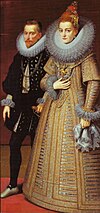 | Isabella Clara Eugenia | 12 August 1566 | 1 December 1633 | 6 May 1598 to 13 July 1621 | His daughter |
| Albert | 15 November 1559 | 13 July 1621 | His son-in-law | ||
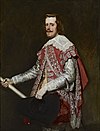 | Philip IV "the Great" | 8 April 1605 | 17 September 1665 | 13 July 1621 to 17 September 1665 | Their nephew |
 | Charles IV "the Bewitched" | 6 November 1661 | 1 November 1700 | 17 September 1665 to 1 November 1700 | His son |
During the War of Spanish Succession, 1701–1714, the duchy was disputed between Philip of Anjou, grandson of Louis XIV of France, of the House of Bourbon; and Charles of Austria, son of Leopold I, Holy Roman Emperor, of the House of Habsburg. In 1712, Luxembourg and Namur were ceded to Maximilian II Emanuel, Elector of Bavaria by his French allies, but at the end of the war in 1713 with the Treaty of Utrecht Maximilian Emanuel was restored as Elector of Bavaria. In 1713, the duchy fell to the Austrian branch of the House of Habsburg.
House of Bourbon
[edit]| Image | Name | Date of birth | Date of death | Reign | Relationship with predecessor |
|---|---|---|---|---|---|
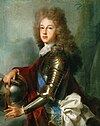 | Philip V Philippe de France | 19 December 1683 | 9 July 1746 | 1 November 1700 – 1712 | his grandnephew |
House of Wittelsbach
[edit]| Image | Name | Date of birth | Date of death | Reign | Relationship with predecessor |
|---|---|---|---|---|---|
 | Maximilian II Maximilian Emanuel Ludwig Maria Joseph Kajetan Anton Nikolaus Franz Ignaz Felix | 11 July 1662 | 26 February 1726 | 1712 – 11 April 1713 | his uncle |
House of Habsburg
[edit]| Image | Name | Date of birth | Date of death | Reign | Relationship with predecessor |
|---|---|---|---|---|---|
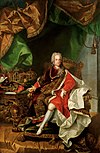 | Charles V Karl Franz Joseph Wenceslau Balthasar Johann Anton Ignatius | 1 October 1685 | 20 October 1740 | 11 April 1713 – 20 October 1740 | his second cousin |
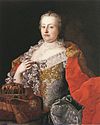 | Maria II Theresa Maria Theresa Walburga Amalia Christina | 13 May 1717 | 29 November 1780 | 20 October 1740 – 29 November 1780 | his daughter |
 | Joseph Joseph Benedikt August Johannes Anton Michael Adam | 13 March 1741 | 20 February 1790 | 29 November 1780 to 20 February 1790 | her son |
 | Leopold Peter Leopold Joseph Anton Joachim Pius Gotthard | 5 May 1747 | 1 March 1792 | 20 February 1790 to 1 March 1792 | His brother |
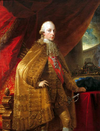 | Francis II Francis Joseph Charles | 12 February 1768 | 2 March 1835 | 1 March 1792 to 1794 | His son |
Luxembourg was occupied by French revolutionaries between 1794 and 1813. At the Vienna Congress, it was elevated to a grand duchy and given in personal union to William I of the Netherlands.
Grand Dukes of Luxembourg
[edit]The Grand Duke of Luxembourg (or Grand Duchess in the case of a female monarch) is the head of state of Luxembourg. Luxembourg is the world's only extant sovereign grand duchy, a status to which Luxembourg was promoted in 1815 upon its unification with the Netherlands under the House of Orange-Nassau.
The Luxembourg constitution defines the grand duke's position:
The grand duke is the head of state, symbol of its unity, and guarantor of national independence. He exercises executive power in accordance with the Constitution and the laws of the country.[2]
Originally, the constitution vested the grand duke with considerable executive power. In practice, however, since the end of the personal union with the Netherlands in 1890, he has usually limited himself to a mostly representative role, acting on the advice of the government. Amendments in 1919 significantly curbed the grand duke's powers, thus codifying two decades of constitutional practice.
House of Orange-Nassau
[edit]| Image | Name | Date of birth | Date of death | Reign | Relationship with predecessor |
|---|---|---|---|---|---|
 | Willem I Willem Frederik (Prince William VI of Orange) | 24 August 1772 | 12 December 1843 | 15 March 1815 to 7 October 1840 | Francis' third cousin and Anne's direct descendant |
 | Willem II Willem Frederik George Lodewijk | 6 December 1792 | 17 March 1849 | 7 October 1840 to 17 March 1849 | Son |
 | Willem III Willem Alexander Paul Frederik Lodewijk | 17 February 1817 | 23 November 1890 | 17 March 1849 to 23 November 1890 | Son |
House of Nassau-Weilburg
[edit]Under the 1783 Nassau Family Pact, those territories of the Nassau family in the Holy Roman Empire at the time of the Pact (Luxembourg and Nassau) were bound by semi-Salic law, which allowed inheritance by females or through the female line only upon extinction of male members of the dynasty. When William III died leaving only his daughter Wilhelmina as an heir, the crown of the Netherlands, not being bound by the family pact, passed to Wilhelmina. However, the crown of Luxembourg passed to a male of another branch of the House of Nassau: Adolphe, the dispossessed Duke of Nassau and head of the branch of Nassau-Weilburg.
In 1905, Grand Duke Adolphe's younger half-brother, Prince Nikolaus Wilhelm of Nassau, died, having left a son Georg Nikolaus, Count von Merenberg who was, however, the product of a morganatic marriage, and therefore not legally a member of the House of Nassau. In 1907, Adolphe's only son, William IV, Grand Duke of Luxembourg, obtained passage of a law confirming the right of his eldest daughter, Marie-Adélaïde, to succeed to the throne in virtue of the absence of any remaining dynastic males of the House of Nassau, as originally stipulated in the Nassau Family Pact. She became the grand duchy's first reigning female monarch upon her father's death in 1912, and upon her own abdication in 1919, was succeeded by her younger sister Charlotte, who married Felix of Bourbon-Parma, a prince of the former Duchy of Parma. Charlotte's descendants have since reigned as the continued dynasty of Nassau.
| Name and reign | Portrait | Birth | Marriages | Death | Right of Succession |
|---|---|---|---|---|---|
| Adolphe 23 November 1890 – 17 November 1905 | 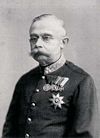 | 24 July 1817 Wiesbaden (Prussia) | (1) Grand Duchess Elizabeth Mikhailovna of Russia 31 January 1844 [1 child (stillborn)] (2) Princess Adelheid-Marie of Anhalt-Dessau 23 April 1851 [5 children] | 17 November 1905 Colmar-Berg | William III's 17th cousin once removed through male line 3rd cousin through William IV, Prince of Orange Anne's direct descendant |
| William IV 17 November 1905 – 25 February 1912 |  | 22 April 1852 Wiesbaden (Prussia) | Infanta Marie Anne of Portugal [6 children] | 25 February 1912 Colmar-Berg | Eldest Child |
| Marie-Adélaïde 25 February 1912 – 14 January 1919 (abdicated) | 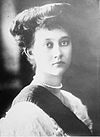 | 14 June 1894 Colmar-Berg | Unmarried [childless] | 24 January 1924 Lenggries (Germany) | Eldest Daughter |
| Charlotte 14 January 1919 – 12 November 1964 (abdicated) | 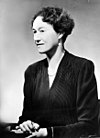 | 23 January 1896 Colmar-Berg | Prince Felix of Bourbon-Parma 6 November 1919 [6 children] | 9 July 1985 Fischbach | Second Daughter |
| Jean 12 November 1964 – 7 October 2000 (abdicated) |  | 5 January 1921 Colmar-Berg | Princess Joséphine Charlotte of Belgium 9 April 1953 [5 children] | 23 April 2019 | Eldest Child |
| Henri 7 October 2000 – present |  | 16 April 1955 Betzdorf | María Teresa Mestre y Batista 4 February/14 February 1981 [5 children] | living | Eldest Son, Second Child |
Timeline of Grand Dukes of Luxembourg since 1815
[edit]
See also
[edit]- Coat of arms of Luxembourg
- Duchy of Luxembourg
- Grand Ducal Family of Luxembourg
- History of Luxembourg
- Line of succession to the throne of Luxembourg
- List of consorts of Luxembourg
- List of prime ministers of Luxembourg
Footnotes
[edit]- ^ "History of the Bohemian royal titles based on contemporary documents". eurulers.altervista.org.
- ^ "Constitution de Luxembourg" (PDF) (in French). Service central de législation. Archived from the original (PDF) on 16 February 2008. Retrieved 1 July 2007.
References
[edit]- Thewes, Guy (July 2003). Les gouvernements du Grand-Duché de Luxembourg depuis 1848 (PDF) (in French) (Édition limitée ed.). Luxembourg City: Service Information et Presse. ISBN 2-87999-118-8. Retrieved 1 July 2007.
- (in French and German) "Archives of Mémorial A". Service central de législation. Archived from the original on 14 June 2007. Retrieved 1 July 2007.
External links
[edit]- History of titles of the counts and dukes of Luxembourg based on contemporary documents (before 1467)
- History of titles of the dukes of Luxembourg based on contemporary documents (1467–1795)
- History of titles of the grand dukes of Luxembourg based on contemporary documents (since 1814)


